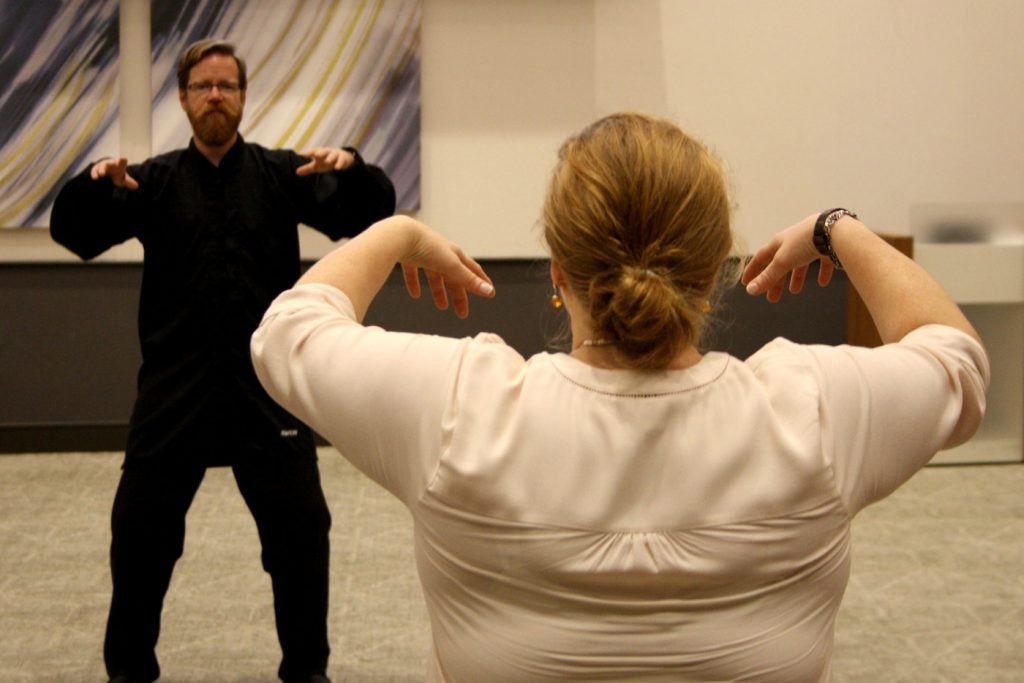
The TACIT Trial: TAi ChI for people with demenTia
This week’s photo of the week is Dr Samuel Nyman‘s entry of a Tai Chi class in action. This weekly series features photo entries from our annual Research Photography Competition taken by BU academics, students and professional staff, which gives a glimpse into some of the fantastic research undertaken across the BU community.
The TACIT Trial is all about people. The study is undertaken by a team of researchers led by Dr Samuel Nyman at BU who are looking into the benefits of Tai Chi for people with dementia. Qualified Tai Chi instructors, such as senior instructor Robert Joyce from Elemental Tai Chi (photographed), lead the classes. The classes are attended by people with dementia and their informal carers. The classes involve slow, gentle, fluid body movements and slow breathing that leave you feeling relaxed and yet you have exercised your core muscles. In this randomised controlled trial, we are following up for six months people who have taken part in the classes and practiced at home and are comparing them to others who have not done Tai Chi. This will provide initial evidence for the first time in the UK as to the benefits of Tai Chi for the health and well-being of people with dementia and their informal carers. This photo is taken from a workshop for Solent NHS led the the chief investigator Dr Samuel Nyman and Robert Joyce.
You can find out more about the TACIT Trial here:
Webpage: www.bournemouth.ac.uk/tai-chi/
Facebook: www.facebook.com/TheTACITTrial/
—
Dr Samuel Nyman is a Principal Academic at Bournemouth University. For more information about this research, please contact Samuel here.
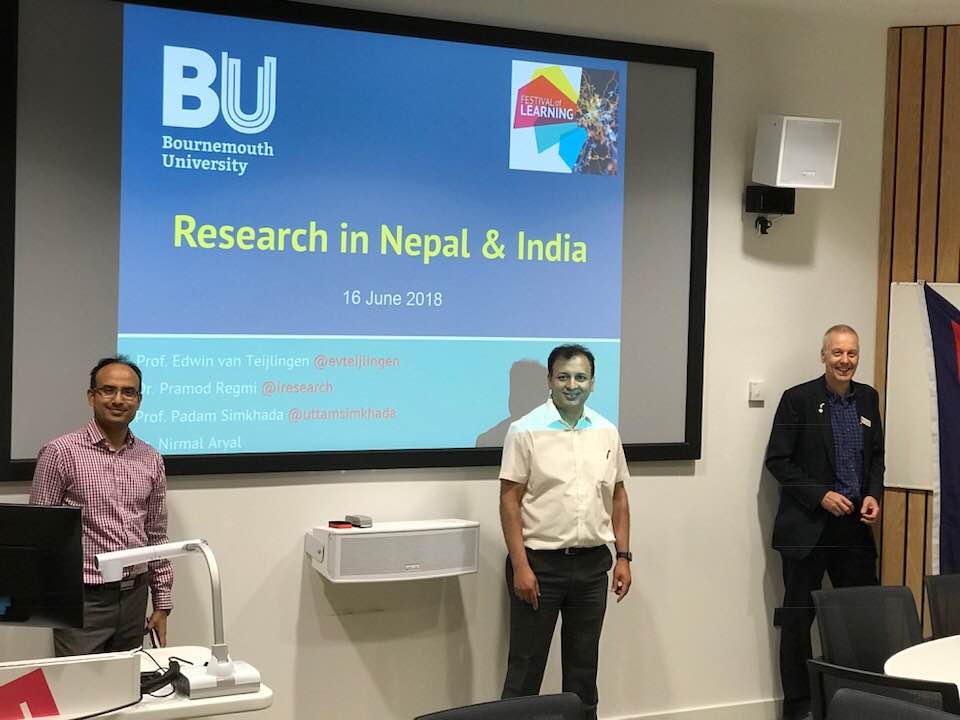


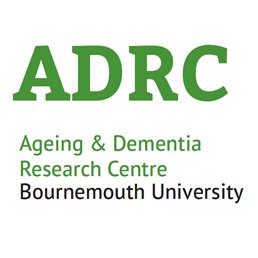
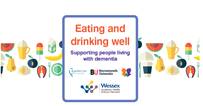


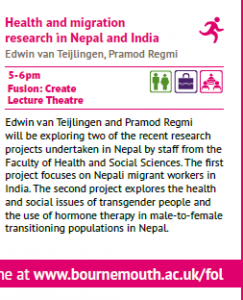
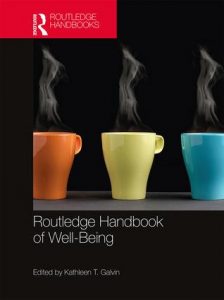 Congratulations to current and past academics in the Faculty of Health & Social Sciences and the Faculty of Science & Technology who contributed to the newly published
Congratulations to current and past academics in the Faculty of Health & Social Sciences and the Faculty of Science & Technology who contributed to the newly published 
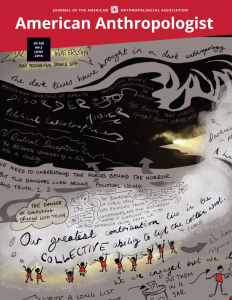
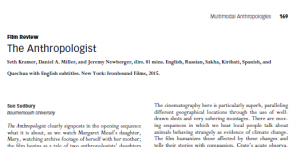
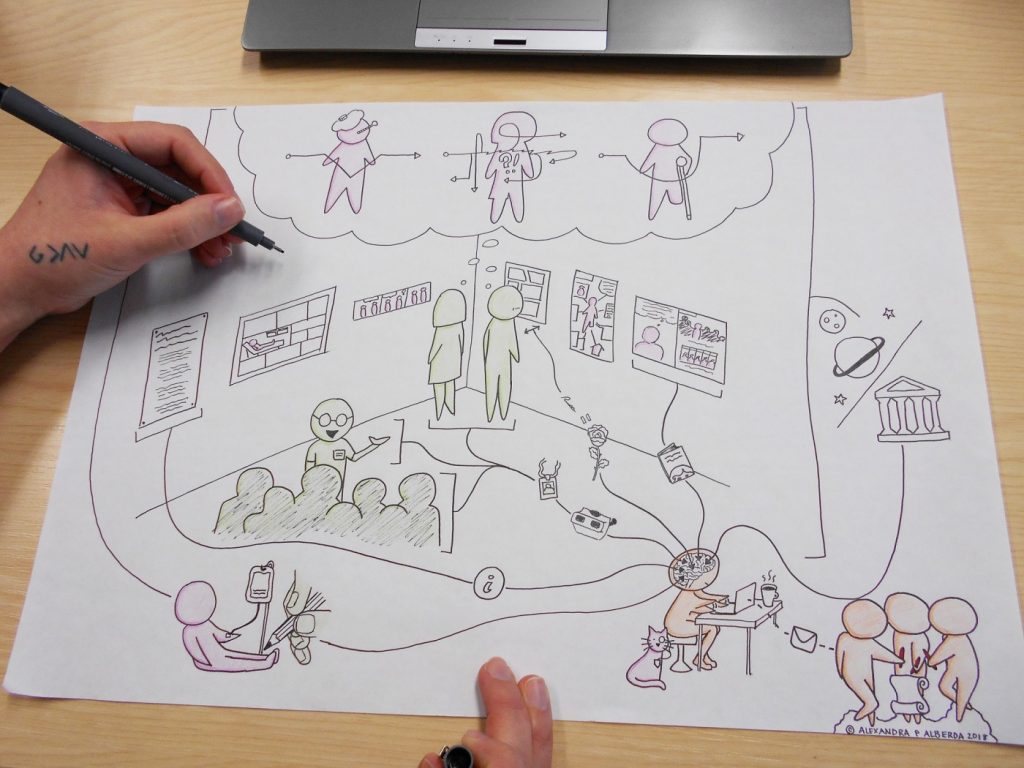



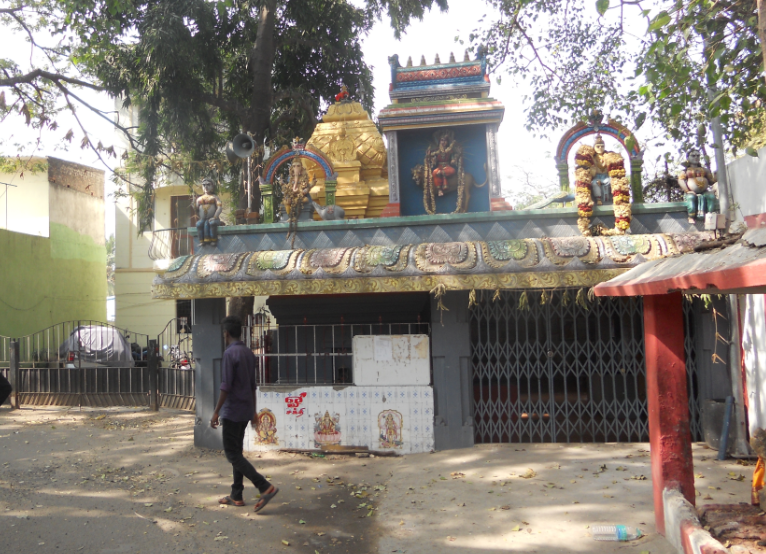

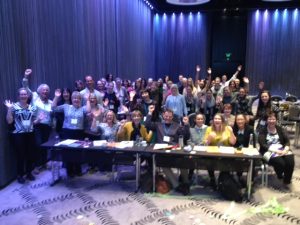
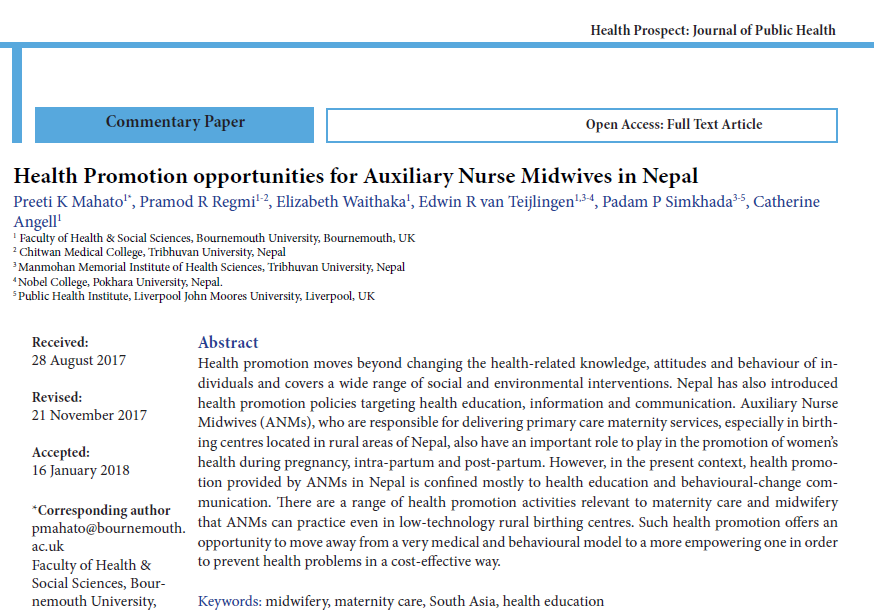
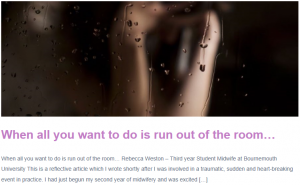
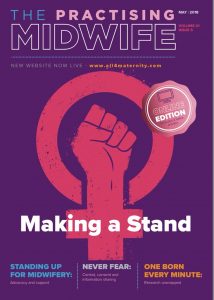
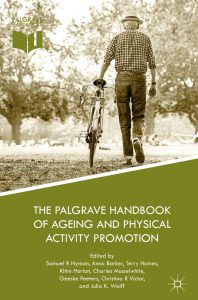
 Professor Jane Murphy from the Ageing and Dementia Research Centre (ADRC) has been invited to join the Malnutrition Task Force (MTF) board (
Professor Jane Murphy from the Ageing and Dementia Research Centre (ADRC) has been invited to join the Malnutrition Task Force (MTF) board (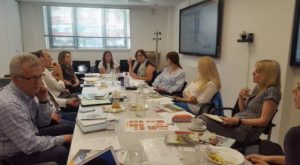
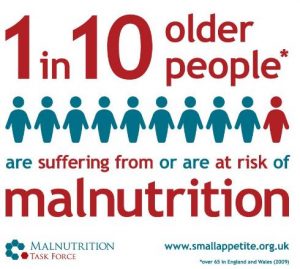











 Nursing Research REF Impact in Nepal
Nursing Research REF Impact in Nepal Fourth INRC Symposium: From Clinical Applications to Neuro-Inspired Computation
Fourth INRC Symposium: From Clinical Applications to Neuro-Inspired Computation ESRC Festival of Social Science 2025 – Reflecting back and looking ahead to 2026
ESRC Festival of Social Science 2025 – Reflecting back and looking ahead to 2026 3C Event: Research Culture, Community & Cookies – Tuesday 13 January 10-11am
3C Event: Research Culture, Community & Cookies – Tuesday 13 January 10-11am Dr. Chloe Casey on Sky News
Dr. Chloe Casey on Sky News ECR Funding Open Call: Research Culture & Community Grant – Application Deadline Friday 12 December
ECR Funding Open Call: Research Culture & Community Grant – Application Deadline Friday 12 December MSCA Postdoctoral Fellowships 2025 Call
MSCA Postdoctoral Fellowships 2025 Call ERC Advanced Grant 2025 Webinar
ERC Advanced Grant 2025 Webinar Horizon Europe Work Programme 2025 Published
Horizon Europe Work Programme 2025 Published Update on UKRO services
Update on UKRO services European research project exploring use of ‘virtual twins’ to better manage metabolic associated fatty liver disease
European research project exploring use of ‘virtual twins’ to better manage metabolic associated fatty liver disease